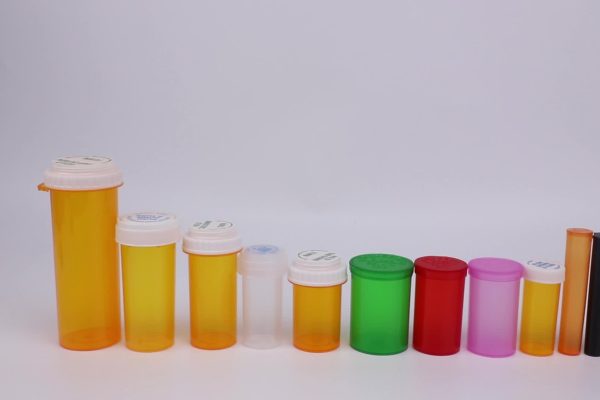Picture this: you’re running an automotive supply chain, juggling tight deadlines, demanding clients, and the constant pressure to deliver flawless parts. One tiny misstep—a faulty component, a delayed shipment—could send your reputation spiraling. Sound familiar? That’s where ISO 9001 certification comes in, acting like a trusty co-pilot to keep your business on track. It’s not just a fancy certificate to hang on the wall; it’s a game-changer for automotive manufacturers and suppliers who want to stay ahead in a cutthroat industry.
ISO 9001 is a globally recognized standard for quality management systems (QMS). It’s built on the idea that consistent processes lead to consistent results—something every automotive business craves. Whether you’re crafting brake pads or assembling dashboards, this certification helps you streamline operations, reduce waste, and build trust with clients like Toyota, Ford, or even smaller OEMs. But let’s be real: getting certified isn’t a walk in the park. It takes effort, commitment, and a willingness to rethink how you do things. So, why bother? Let’s break it down.
What’s ISO 9001, and Why Should You Care?
At its core, ISO 9001 is about quality—delivering products that meet customer expectations, every single time. It’s a framework that pushes you to document processes, track performance, and fix issues before they snowball. For automotive suppliers, this is huge. You’re not just making parts; you’re building trust with clients who can’t afford defects. A single recall could cost millions, not to mention the PR nightmare. ISO 9001 helps you avoid those pitfalls by embedding quality into every step of your operation.
Here’s the thing: the automotive industry is obsessed with precision. Think about the tolerances required for an engine component—measured in microns, not millimeters. ISO 9001 forces you to obsess over those details too, but in a systematic way. It’s like having a blueprint for excellence. Plus, many automakers won’t even glance at your proposal unless you’re ISO 9001 certified. It’s practically a ticket to the big leagues.
- Consistency: Standardized processes mean fewer surprises.
- Customer Trust: Certification signals you’re serious about quality.
- Efficiency: Spot and fix inefficiencies before they drain your budget.
Now, I know what you’re thinking: “This sounds great, but what’s the catch?” Well, it’s not all sunshine and rainbows. Certification requires time, money, and a cultural shift. You’ll need buy-in from everyone—shop floor workers to C-suite execs. But trust me, the payoff is worth it.
The Automotive Edge: Why ISO 9001 Fits Like a Glove
The automotive industry isn’t like other sectors. It’s high-stakes, fast-paced, and unforgiving. A delayed shipment could halt an entire assembly line, and a defective part could lead to a lawsuit. ISO 9001 is tailor-made for this environment. It’s not just about checking boxes; it’s about building a culture of accountability and precision.
Take supplier relationships, for example. Automotive giants like General Motors or Volkswagen rely on a sprawling network of suppliers. ISO 9001 Certification ensures everyone’s singing from the same hymn sheet. When your processes are standardized, it’s easier to integrate with Tier 1 or Tier 2 suppliers. You’re not just a cog in the machine—you’re a reliable partner who delivers on time, every time.
And let’s talk about lean manufacturing, the holy grail of automotive production. ISO 9001 dovetails perfectly with lean principles. By identifying waste—whether it’s excess inventory or rework—you can shave costs and boost margins. It’s like giving your business a tune-up, making it run smoother and faster.
Here’s a quick story. A mid-sized supplier I know was struggling to land contracts with a major OEM. Their parts were solid, but their processes were a mess—think inconsistent documentation and sporadic quality checks. After getting ISO 9001 certified, they revamped their QMS, tightened their workflows, and landed a multi-year contract. That’s the kind of transformation we’re talking about.
Okay, But What Does It Actually Do?
You might be wondering: “What’s the nuts and bolts of ISO 9001?” Fair question. The standard revolves around seven key principles, but let’s focus on the ones that hit hardest for automotive folks:
- Customer Focus: Everything starts with the client. ISO 9001 pushes you to understand their needs—whether it’s tighter specs or faster delivery—and deliver consistently.
- Process Approach: No more winging it. You map out every step, from raw material sourcing to final inspection, ensuring nothing slips through the cracks.
- Continual Improvement: This is where the magic happens. You’re always tweaking, refining, and optimizing. It’s like upgrading your car’s engine year after year.
- Evidence-Based Decision Making: Gut feelings don’t cut it. ISO 9001 demands data—think defect rates, cycle times, or customer feedback—to drive decisions.
For automotive suppliers, these principles translate into real-world wins. Imagine catching a flaw in your welding process before it reaches the client. Or shaving 10% off production time by streamlining your supply chain. That’s ISO 9001 in action.
The Certification Journey: What to Expect
Alright, let’s get practical. Getting ISO 9001 certified isn’t like flipping a switch. It’s a journey, and it starts with a hard look in the mirror. Here’s a rough roadmap:
- Gap Analysis: Figure out where you stand. Compare your current processes to ISO 9001 requirements. This is like a diagnostic test for your business.
- Build Your QMS: Document everything—workflows, quality checks, training protocols. Tools like Trello or Monday.com can help keep things organized.
- Train Your Team: Everyone needs to be on board. From line workers to managers, training ensures consistency across the board.
- Internal Audits: Test your QMS before the big day. Think of it as a dress rehearsal.
- Certification Audit: A third-party auditor (like Bureau Veritas or DNV) will review your processes. Pass, and you’re certified. Fail, and it’s back to the drawing board.
Sounds daunting, right? It can be, especially for smaller suppliers with lean budgets. But here’s a tip: start small. Focus on one process—say, your inspection protocols—and build from there. And don’t go it alone. Consultants like Quality-One or ISO experts on LinkedIn can guide you through the maze.
Oh, and a quick heads-up: certification isn’t a one-and-done deal. You’ll need to renew it every three years, with annual surveillance audits. It’s like maintaining a high-performance car—regular tune-ups keep it running smoothly.
Challenges You’ll Face (And How to Tackle Them)
No sugarcoating here—certification comes with hurdles. The biggest? Resistance to change. Your team might groan at the idea of new processes or extra documentation. I’ve seen shop floor workers roll their eyes, thinking, “Another corporate hoop to jump through.” The trick is to show them the why. Explain how ISO 9001 makes their jobs easier—less rework, fewer angry customers.
Another challenge is time. If you’re already stretched thin, carving out hours for audits or training feels like a luxury. My advice? Break it into bite-sized chunks. Tackle one department at a time, and celebrate small wins to keep morale high.
And don’t forget about scope creep. It’s tempting to overhaul everything at once, but that’s a recipe for burnout. Focus on what matters most—like your core production processes—and expand from there.
A Word on Trends: ISO 9001 in 2025
Let’s zoom out for a second. The automotive industry is changing fast. Electric vehicles, autonomous driving, and sustainability are rewriting the rulebook. ISO 9001 is evolving too. In 2025, expect more emphasis on risk management and digital integration. Tools like AI-driven quality analytics or blockchain for supply chain transparency are becoming part of the QMS conversation. Certification doesn’t just keep you compliant; it keeps you relevant.
Take sustainability, for instance. Automakers are under pressure to go green, and that trickles down to suppliers. ISO 9001’s focus on efficiency dovetails with eco-friendly practices—less waste, lower energy use. It’s a win-win.
Your Next Steps: Don’t Wait
If you’re an automotive supplier, ISO 9001 isn’t a nice-to-have—it’s a must. It’s the difference between scraping by and thriving. So, where do you start? Take a deep breath, and reach out to a consultant or auditing body. Check out resources like the Automotive Industry Action Group (AIAG) or ISO’s official website. And talk to your team—get them excited about the journey.
Here’s the bottom line: ISO 9001 isn’t just a standard; it’s a mindset. It’s about striving for excellence, even when the road gets bumpy. In the automotive world, where every part matters, that mindset is your secret weapon. So, what are you waiting for? Get certified, and drive your business to the next level.






